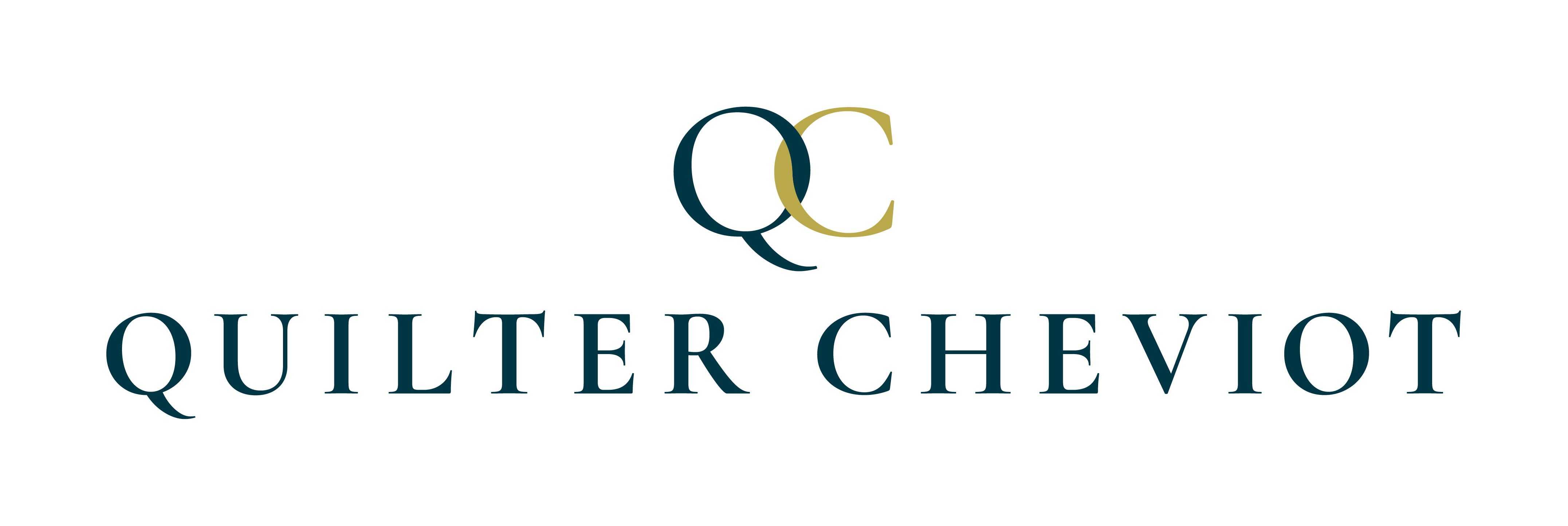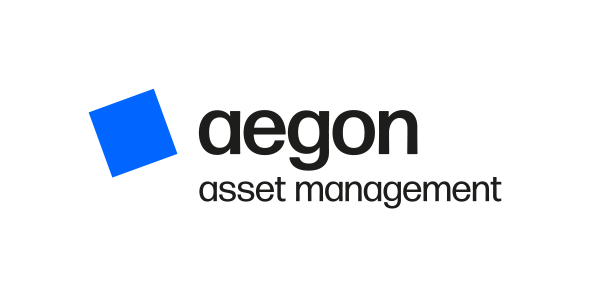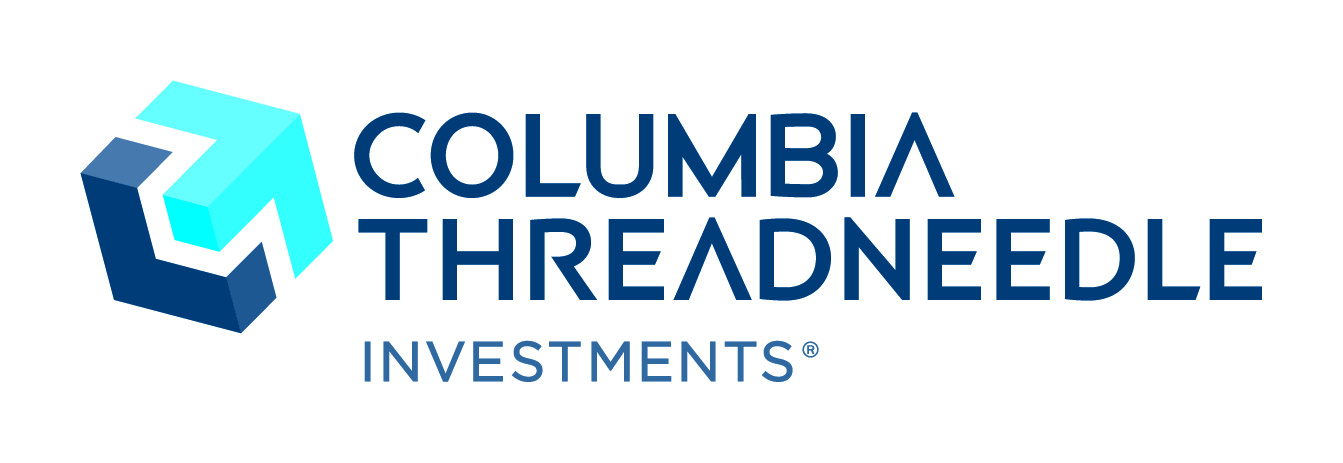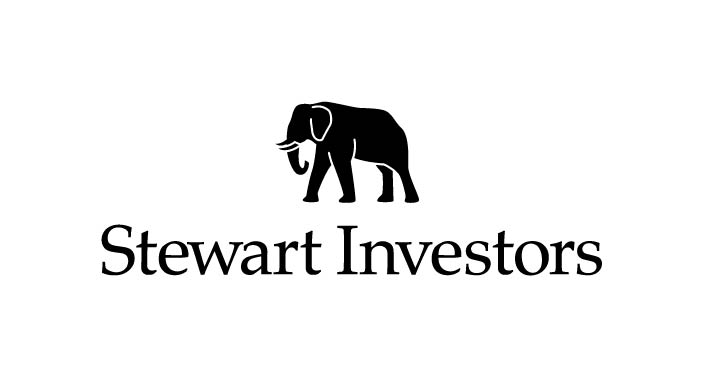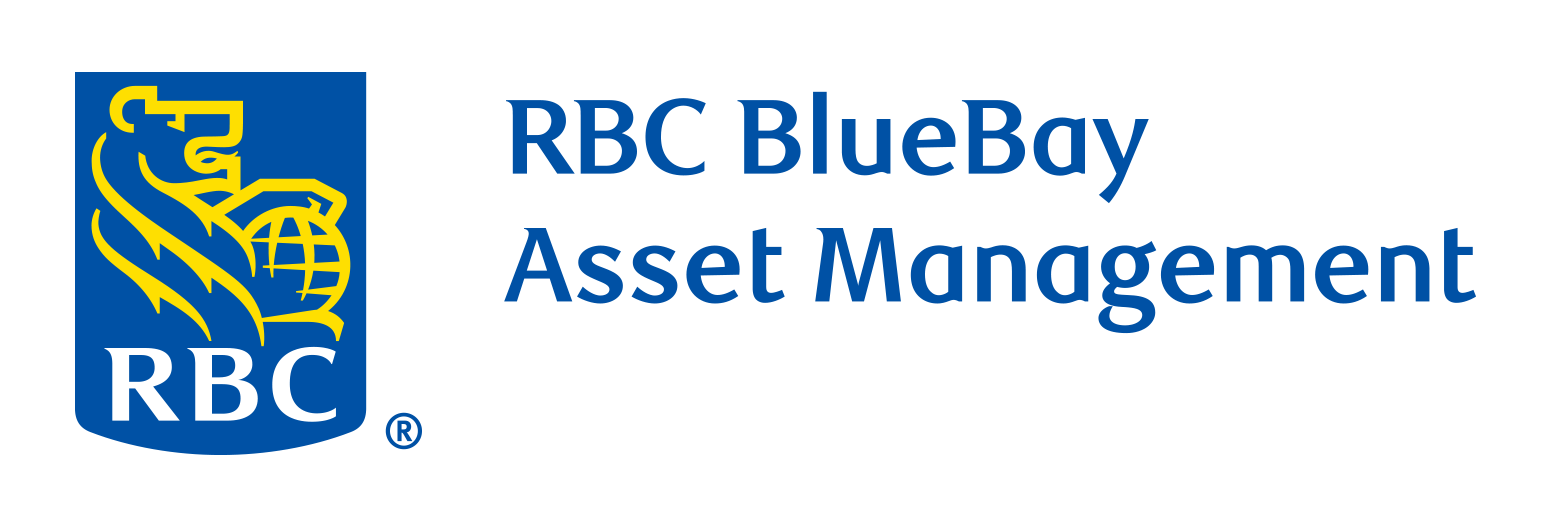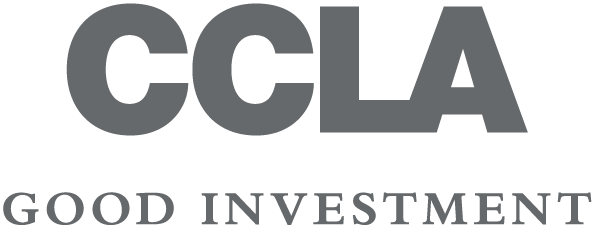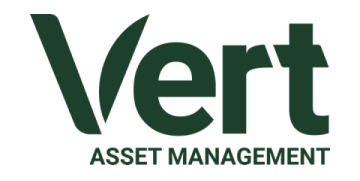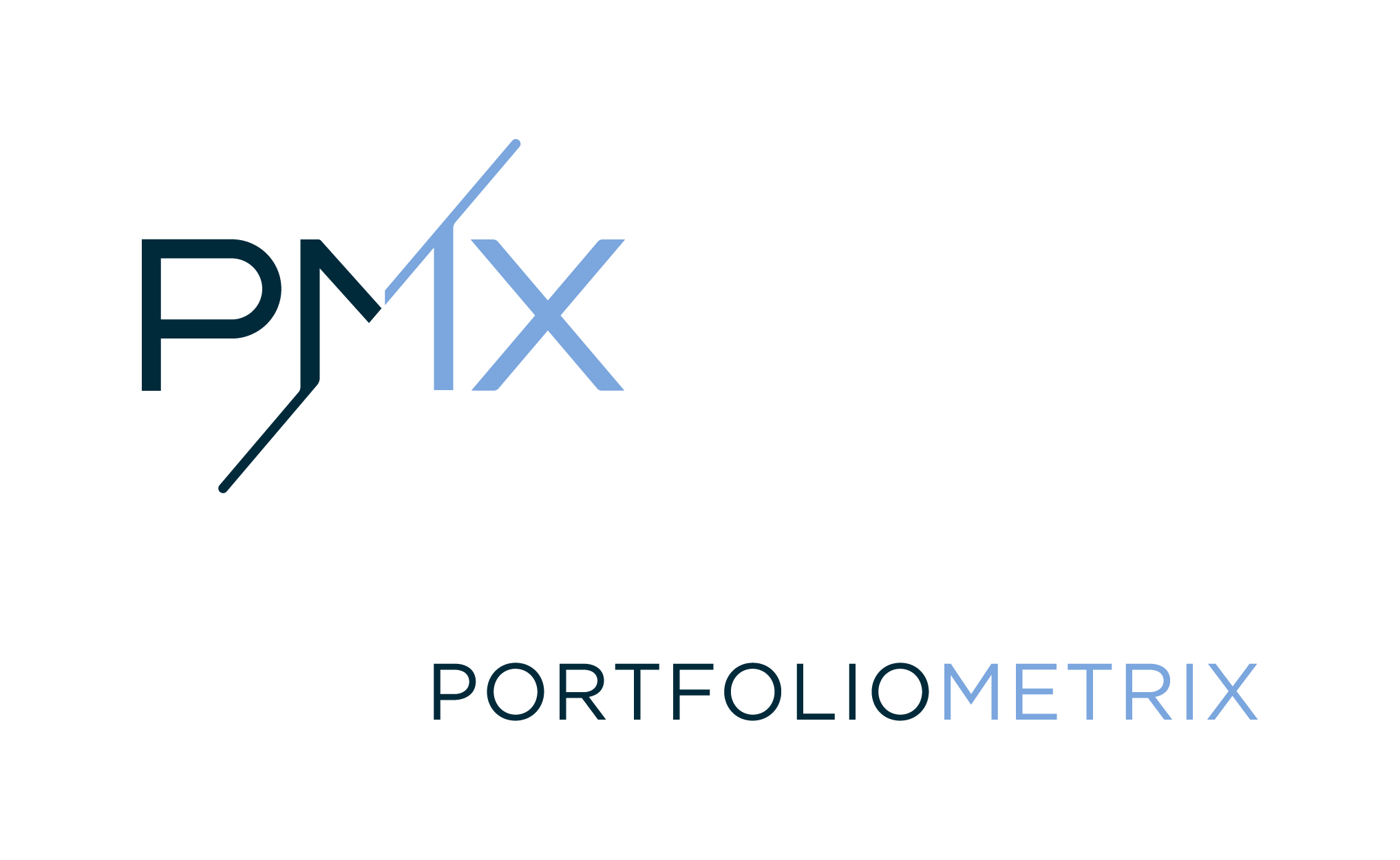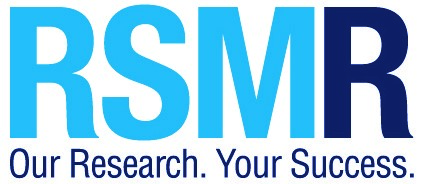Fund EcoMarket is free to use thanks to our partners. Partner logos are displayed within primary fund and product entries.
Please help us by responding to this brief survey.
Loading funds ...
Applied Filters
Fund Name Search
Sponsor Search
Nature & Biodiversity
Climate Change & Energy
Environmental - General
Sustainability - General
Social / Employment
Ethical Values Led Exclusions
Human Rights
Meeting Peoples' Basic Needs
Gilts & Sovereigns
Governance & Management
Banking & Financials
Product / Service Governance
Asset Size
How The Fund/Portfolio Works
Labels & Accreditations
Intended Clients & Product Options
Unscreened Assets & Cash
Targeted Positive Investments
Impact Methodologies
About The Business
Resources
Accreditations
Collaborations & Affiliations
Engagement Approach
Company Wide Exclusions
Climate & Net Zero Transition
Transparency
SRI Styles
Asset Type
Geographic Region
Product Type
SDR Labelling
Sustainability & Environmental
Has policies designed to address involvement in irresponsibly managed palm oil or other forms of deforestation (typically exclusion led). Strategies vary.
Avoids assets that are involved in illegal deforestation. This may relate to palm oil, cattle farming or other areas. Strategies vary.
Aims to avoid investing in companies that produce genetically modified seeds or crops. (This does not typically include avoiding companies such as supermarkets).
Has a written biodiversity policy or theme typically aimed at supporting, encouraging and improving environmental protection and safeguarding the natural world (sometimes referred to as 'natural capital'). See eg https://www.un.org/en/climatechange/science/climate-issues/biodiversity
A significant focus on the investments that aim to take better care of the marine environment – both for wildlife and the people whose livelihoods directly depend on it.
A significant focus on investments that aim to protect, improve and / or restore natural habitat.
Has a significant focus on investment in nature and biodiversity related opportunities
Has a responsible palm oil policy - typically likely to divert investment away from poor practices.
Has a sustainable fisheries policy that will inform where they can and cannot invest.
Avoids assets / companies directly involved in genetic engineering
Has a policy which sets out their expectations for how investee assets should manage their use of water - likely to focus on high users.
Has a policy which describes the avoidance or limited investment in the nuclear industry. Strategies vary.
Avoid investment in major coal, oil and/or gas (extraction) companies. Strategies vary.
Has policies (documented strategies that explain their position) on climate change related issues such as greenhouse gas/carbon emissions, net zero, transitioning to lower carbon. Strategies vary.
Invest in renewable energy companies and / or companies where renewable energy is a significant part of their business. Strategies vary.
Avoid companies involved in fracking and tar sands - which are widely regarded as controversial methods of oil and gas extraction. Strategies vary.
Invest (or may invest) in clean / renewable energy companies and other assets. The proportion directly or indirectly invested in renewable energy may vary over time.
Avoid companies that are involved in extracting oil from the Arctic regions.
Avoid investing in companies / assets with coal, oil and gas reserves. See individual entry information for further details.
Has an energy efficiency theme - typically meaning that the manager is focused on investing in organisations that manage - or help others to manage - energy use more carefully and less wastefully - and so reduce greenhouse gas emissions.
Requires all, or most of, the assets they invest in to have a ‘net zero action plan’ - describing how they will reduce their greenhouse gas emissions.
Aims to ensure holdings will reduce their greenhouse gas emissions in line with targets set at COP21 in Paris. The core aim is to help achieve ‘net zero emissions by 2050’ and a ‘maximum global temperature increase of +1.5 to +2 degrees above preindustrial levels’. Strategies and opinions vary.
Will only invest in companies that report greenhouse gas emissions in line with this international reporting framework. See https://www.fsb-tcfd.org/ https ://www.ifrs.org/sustainability/tcfd/
Encourage the transition to lower carbon activities through asset selection and / or responsible ownership activity.
Has a supply chain decarbonisation policy which sets out their position on the need to reduce carbon emissions.
Has a policy or theme which sets out their position on investment in companies researching/developing hydrogen as an energy solution.
Excludes companies and other assets with direct involvement in fossil fuel exploration (eg coal, oil and gas companies)
Excludes companies / assets with indirect involvement in fossil fuel exploration. This may relate to providers of finance and / or insurance and providers of other services.
Has policies which relate to environmental issues. These will typically set out their stance on issues such as pollution, climate change, resource management, biodiversity loss, carbon emissions, plastics and/or additional environmental impacts. Strategies vary.
Options that limit or 'reduce' their exposure to carbon intensive industries (ie sectors which are major contributors to climate change). Strategies vary.
Has a policy or theme that relates to managing natural resources more efficiently. Strategies vary. See individual entry information.
Has a policy describing their response to the challenges posed by plastics (particularly single use, non-recyclable plastics). Strategies vary.
Has documented policies explaining the approach to environmental damage and pollution. Strategies vary.
Aims to invest in companies with strong or market leading environmental policies and practices. Strategies vary. See individual entry information for more detail.
Has a written policy or theme focused on waste management - typically to support or encouraging higher levels of recycling and better efficiency / reducing waste. Strategies vary.
Has a policy relating to the disposal of electronic waste.
Has policies that consider (environmental and social) sustainability issues. Strategies vary but are likely to consider environmental issues like climate change, carbon emissions, biodiversity loss, resource management, environmental impacts; and social issues like equal opportunities, human rights, labour standards, diversity and adherence to internationally recognised codes. See individual entry information.
Has documented policies or thematic investment approaches supporting investment in more sustainable, greener transport methods. These will typically set out a preference for companies that run, enable or support more sustainable methods of transport.
Use the UN Global Compact to inform or help direct where they can or cannot invest. Will typically not invest in companies with significant breaches (low standards) - strategies vary. (The UNGC covers a wide range of issues - search 'UNGC'). See https://unglobalcompact.org/
Has a significant focus on sustainability issues
Aim to invest (and manage assets) in ways that help to address all or some of the UN's Sustainable Development Goals (SDGs). See https://sdgs.un.org/goals).
Publicly report performance against named sustainability objectives
Aim to encourage higher sustainability standards through responsible ownership / stewardship / engagement / voting activity
Has a theme or investment strand focused on the shift to a circular economy - where products are reused and recycled not incinerated or dumped. See eg https://www.ellenmacarthurfoundation.org/topics/circular-economy-introduction/overview
Aim to support the shift to a sustainable future. See eg https://www.transitionpathwayinitiative.org/
Has a strategy on - and may focus investment on sustainability issues in the property sector - they may eg use GRESB / BREEAM scores to inform investment decisions.
Social & Ethical
Has policies that set out their position on ethical or 'personal values' based issues. Strategies vary.
Has policies that require specific animal welfare standards to be met. These may reference well-known welfare standards (3Rs - Replace, Reduce, Refine) or certification schemes. Strategies vary.
Companies are excluded if they are involved in any aspect of the production chain for tobacco products, including cigarettes, vaping, e-cigarettes, chewing tobacco and cigars.
Avoids companies that manufacture weapons intended specifically for military use. Strategies vary - may or may not include non-strategic military products.
Avoids companies that produce alcohol. Strategies vary; some may allow a small proportion of revenue to come from this area.
Avoids companies with significant involvement in the gambling industry. Some may allow a small proportion of revenues to come from this area.
Avoids companies that derive significant income from pornography and related areas. Strategies vary.
Avoids companies that test their products on animals for purposes other than medical benefit (e.g. for cosmetics). Strategies vary.
Has a written civilian firearms exclusion policy - meaning that they will not invest in companies that make (or perhaps also sell) handguns made for non-military users.
Companies are excluded if they make more than 5% of their revenue from the manufacture, sale or distribution of tobacco products including cigarettes, vaping, e-cigarettes, chewing tobacco and cigars.
Avoids companies that test their products on animals. Strategies may vary, eg where testing is required by law.
Does Not exclude companies with military contracts - this may include medical supplies, food, safety equipment, housing, technology etc.
Excludes companies which make controversial weapons such as landmines, cluster munitions and chemical weapons.
Does Not exclude manufacturers of products intended for use in armaments and weapons. So may invest in them
Avoids companies with military contracts. This may include medical supplies, food, safety equipment, housing, technology etc
Has policies relating to human rights issues. Typically require companies to demonstrate higher standards, although some managers work to encourage improvements. Investee companies are often judged against internationally agreed norms or standards. Strategies vary.
Has policies to avoid companies that employ children.
Has policies or a theme that relates to the responsible management of supply chains. These may relate to employment issues, notably people employed by their suppliers, as well as the sourcing of materials and products.
Has policies that exclude companies or other assets which operate in, or are owned by regimes which are not democratic, or where people may be oppressed. May use eg. Freedom House research. Strategies vary.
Has a policy which sets out the position on the treatment of indigenous people by investee assets/companies - typically meaning they won't invest in companies with low standards.
Has a policy which excludes assets with involvement in Modern Slavery
Has a policy which sets out its position on LGBTQ+ related social issues and their expectations of investee assets - typically meaning they won't invest in companies with poor standards.
Have policies or themes that set out the position on investment in the water sector and/or sanitation. Strategies vary.
Invest in social housing property freeholds. Strategies vary.
Has a thematic investment approach focusing on the ‘silver economy’ - in particular (typically) the issues and opportunities presented by changing demographics. This could include finance, healthcare and medicines and/ or longevity science to extend lifespans. Strategies vary.
Has a policy on ‘antimicrobial resistance’ - which is when organisms that cause infection can survive treatment - which is commonly associated with the overuse of antibiotics in factory farming.
Invest in ‘social bonds’ which raise funds for the purpose of financing projects with positive social (people related) outcomes.
Invests more than 50% in social bonds which raise funds for the purpose of financing projects with positive social (people related) outcomes.
Have investments in social housing or similar assets.
Invests more than 50% in social housing or similar assets.
Focuses on (ie directs a significant proportion of its investment towards) green infrastructure, eg the clean energy supply chain.
Has a theme that may direct investment towards newer forms of food such as plant based meat alternatives. May have one or many themes.
Has a responsible food production or agriculture theme or strand of investment. May have a single or many themes.
Healthcare and or medical theme or area of investment - may have a single or many themes
Does not invest in, or excludes, gilts and/or government bonds.
Avoids investing in 'some' gilts or government bonds. Strategies vary, but this may relate to avoiding specific countries or particular reasons for bond issuance. 'Green gilts' for example would be likely to be acceptable.
Invest in loans issued the government, commonly known as gilts or government bonds. These may or may not be ringfenced for specific projects (see additional options).
Invests in financial instruments issued by governments, typically for risk reasons, but do not screen them for environmental and social characteristics.
Invest in financial instruments issued by governments, but will only hold those that meet certain environmental and or social criteria. This may, for example mean certain assets are excluded in line with eg Freedom House research. Strategies vary.
Does not invest in / excludes 'sovereigns' - debt issued by governments. See eg https://www.investopedia.com/terms/s/sovereign-debt.asp
Governance & Financials
Has policies that relate to corporate governance issues such as board structure, executive remuneration, bribery and/or corporate corruption. These funds will typically avoid companies with poor practices. Strategies vary.
Has policies explaining how managers will respond to assets / companies that do not comply with relevant anti-bribery and anti-corruption standards or laws. Strategies vary; options include stewardship/ engagement and divestment - or a combination.
Avoids investing in companies with poor governance practices.(e.g. board structure, management practices etc.) Views may however vary on what counts as 'poor' practices - and funds may not immediately divest as they may prefer to work to encourage higher standards.
Has policies explaining how the managers take into account digital/cyber security related risks. Cyber policies will typically favour companies with higher standards or that are helping to solve problems - but strategies vary.
Encourage the companies they invest in to have more diverse board structures (e.g. more women on boards)
Encourage the banks and insurance companies they invest in to publish climate change related financial information - as set out by the Task Force on Climate Related Financial Disclosures (with the aim of helping investors measure and respond to climate risk).
Exclude companies that are subject to United Nations sanctions. See eg https://main.un.org/securitycouncil/en/content/un-sc-consolidated-list
Aim to encourage higher ESG standards through responsible ownership / stewardship / engagement /voting activity
Requires the companies they invest in to report on climate risks that are relevant to their business in their report and accounts
Invest in banks and other financial institutions that implement the Task Force on Climate Related Financial Disclosures recommendations on climate change related financial disclosures - which aim to help financial markets measure and respond to climate risk.
Excludes financial services companies with widely criticised, aggressive lending practices where interest rates are typically very high, (eg ‘doorstep lending’)
Does not invest in banks.
Avoids banks that have a large part of their loan book (or other assets) invested in fossil fuels companies - particular coal, oil and gas.
Exclude all companies in the banking, insurance and finance sectors.
Avoids banks which finance fossil fuels extraction (coal, oil, gas)
Can include banks as part of their holdings / portfolio.
Invests in financial instruments (cash, derivatives and / or foreign exchange) issued by banks. Strategies vary.
Avoids investing in insurance companies, typically because of the organisations they insure. Strategies vary.
Avoids investing in insurance companies that insure major fossil fuels companies – particularly coal, oil and gas. Strategies (eg definition of ‘major’) vary.
May invest in insurance companies.
Find fund / asset managers that factor in 'environmental, social and governance' issues as part of their investment decision making process. A focus on 'ESG' typically means a fund is carrying out additional research to help reduce ESG related risks. It does not necessarily mean a focus on sustainability. Strategies vary. See fund literature.
Environmental, social and governance issues are part of this fund’s reporting of their ‘value’ to clients. AoV reporting is a statutory requirement. Including ESG factors in its calculation is not.
Find options that have an external committee that helps steer or advise managers on sustainability, ethical, stewardship or ESG policy or strategy related issues. These people may be paid for their time but are not employees of the fund manager.
Find options that employ an external committee (i.e. not company employees) that has the power to veto (i.e. overrule) fund/asset managers selection decisions. (This would typically mean the committee can tell the manager not to buy / sell a specific investment.)
Invests more than half of their money in smaller or medium sized companies. (i.e. below around £5 -10 billion)
Invests more than half of their money into what are commonly regarded as 'large companies'. This will typically mean that the market capitalisation (or value) of the companies they hold is in excess of £5 to £10 billion.
Invests in a combination of small, medium and larger (potentially multinational) companies / assets.
Invests mainly in larger companies / assets. (e.g. over circa £5-£10bn)
Invests in international entities or bodies with agreed remits that are broadly similar to those that may otherwise be undertaken by individual governments eg the UN
Has SRI strategies which focus their investment stock selection on small or mid cap companies / assets. (e.g. below circa £10bn)
Methods & Product
Has a single resource themed focus in their investment strategy on a single natural 'resource' eg water.
Considers both the 'positive' and 'negative' aspects of company behaviour and makes balanced, considered decisions as part of their investment approach. May apply to a range of different issues and policy areas.
Has principle approach to apply positive or negative ethical, social and / or environmental screens. Strictly screened investments are likely to exclude more companies than other related options. Strategies vary.
Has some exclusions - typically for example excludes tobacco or companies that breach commonly adopted standards or norms such as the UN Global Compact.
Focuses on finding and investing in companies with positive / beneficial attributes. This strategy can be applied in addition to exclusion criteria and engagement/stewardship activity.
Has principle 'ethical approach' to avoid companies by using negative screening criteria. Strategies vary.
Uses internationally agreed standards, conventions and 'norms' to help direct investment decisions (e.g. the UN Global Compact, UN Sustainable Development Goals).
Investment selection process uses internationally agreed 'norms' (e.g. United Nations Global Compact - UNGC - or the UN Sustainable Development Goals - SDGs) alongside additional SRI criteria such as positive or negative stock selection policies and/or stewardship strategies.
Invests in assets which have an ESG strategy (which is typically focused on avoiding companies that pose environmental, social or governance related risks) together with additional criteria such as positive and/or negative screens, themes and stewardship strategies.
Invest more heavily in assets which have higher ESG ratings/standards or scores and less heavily in companies with lower ESG ratings. Where this is central to the strategy you should expect assets in most sectors. Strategies vary.
Only uses an investment index to direct where they can invest. Fund strategies and indices vary.
Makes stock selection (and ongoing management) decisions based on ESG data or company ratings (normally supplied by third parties) rather than focusing on what individual companies do, how they operate or their plans for the future
Focuses on the careful management of environmental, social and governance (ESG) related risks - typically by avoiding or being underweight in companies seen as posing major risks in these areas (i.e. not necessarily by using themes, exclusions etc).
May alter/soften or move away from their regular ESG/sustainability/ethical investment selection criteria when investment market conditions become difficult
Aims to avoid companies that do significant harm. This originates from the EU’s sustainable finance ‘DNSH’ (do no significant harm) work, which is not necessarily used by UK investors.
Publish explanations of their ethical, social and/or environmental policies online (i.e. investment decision making strategies/ buy/sell &/or asset management strategies).
Invests in assets which can be 'mapped' (reviewed) their investment selection and management strategies to identify which of the UN Sustainable Development Goals (SDGs) the fund is helping to address.
Has changed its mandate. It was previously not an ESG/sustainable fund. The information published here shows the upgraded strategy.
May invest in assets that have not passed its usual sustainability criteria or screening standards in order to help manage investment risk. This may be limited or significant. Strategies vary.
Has different risk options for the same investment strategy
Invests in newly listed companies and other assets (eg bonds) which are significantly focused on the provision of products and/or services which are designed to solve environmental and/or social problems.
Uses specialist strategies to aid performance which involve ‘lending’ assets to others at specific points in time.
Does not use stock lending for performance or risk purposes.
Find options that are rated by research agency 'Rayner Spencer Mills Research' (awarded 'RSMR Rated' status). Contact RSMR for further information.
Find options classified under Article 8 of the EU’s SFDR (Sustainable Finance Disclosure Requirements).
Article 8 of the SFDR is a set of requirements that apply to financial products that 'promote' environmental or social characteristics together with high governance.
These rules do not currently apply to UK products so many managers may leave this field blank.
Find options classified under Article 9 of the EU’s SFDR (Sustainable Finance Disclosure Requirements).
Article 9 of the SFDR applies to financial products that have sustainable investment 'objectives' - including emissions reduction objectives.
(These may currently be referred to as 'impact' funds or aiming to deliver clear, specific positive outcomes.)
These rules do not currently apply in the UK so product managers may leave this field blank.
Find options that have chosen to adopt one of the Financial Conduct Authority (FCA) SDR labels. Please note: there are a range of reasons why potentially relevant options may not use an SDR label eg. adopting a label may be work in progress, the manager may not yet be allowed to do so because of the product type, a manager may feel they are insufficiently aligned to SDR requirements.
Find options certified by the London Stock Exchange as having over 50% of its assets contributing to the green economy https://www.londonstockexchange.com/raise-finance/sustainable-finance/green-economy-mark.
A voluntary corporate culture standard for investment managers, see https://www.investorsact.com/ - City Hive
Has attributes that commonly suit the aims of investors of faith - although they may not be specifically marketed as being only for religious investors. Strategies vary (as do investor aims).
Designed to meet the needs of individual investors with an interest in sustainability issues.
Designed to be appropriate for vegetarians and vegans - be aware that strategies may vary
Designed to meet the needs of individual investors with an interest in ‘Impact investment’ which help or support the delivery of positive social or environmental impacts (or societal/real world outcomes) by investing in companies regarded as beneficial to people and / or the planet. Strategies vary.
Available via a tax efficient ISA product wrapper.
Only applicable for DFM’s & portfolio providers. Finds those that offer an SRI / ESG portfolio option
Only applicable for DFM’s & portfolio providers. Find service providers who offer multiple SRI / ESG portfolio options
Only applicable for DFM’s & portfolio providers. Find service providers who offer bespoke ('personalised') SRI / ESG portfolio options
Designed for clients who care about ethical and values-based issues, often alongside sustainability issues also.
All assets - except cash - meet the sustainability criteria published in strategy documentation.
Holds between 70-79% of assets which align to the sustainability objectives; which are not being held purely for risk management purposes, such as derivatives and cash equivalent assets.
Holds between 80-89% of assets which align to the sustainability objectives; which are not being held purely for risk management purposes, such as derivatives and cash equivalent assets.
Holds at least 90% of assets which align to the sustainability objectives; which are not being held purely for risk management purposes, such as derivatives and cash equivalent assets.
Only invests in cash to aid the practical management (buying and selling) of assets and so do not use additional financial instruments.
The cash held has a sustainability strategy; strategies vary.
Positive Aims & Intentions
Invests in between 5-25% of capital in assets which meet the EU Taxonomy requirements. This will typically require adding up the proportion of each individual company's activity that is regarded as 'green' so that the manager can produce an overall total for the whole fund or portfolio.
Invests more than 25% of capital in assets which meet the EU Taxonomy requirements. This will typically require adding up the proportion of each individual company's activity that is regarded as 'green' so that the manager can produce an overall total for the whole fund or portfolio.
Invests in assets that focus on improving the marine environment – for both wildlife and the people whose livelihoods directly depend on it.
Invests >25% of their capital in companies where a major part of their business is focused on helping to address environmental or social challenges.
Invests >50% of their capital in companies where a major part of their business is focused on helping to address environmental or social challenges.
Invests in green bonds (also known as climate bonds) which encourage sustainability and support climate related or special environmental projects.
Invests in loan stock that is supporting or enabling the shift towards a cleaner, more sustainable future. Strategies vary significantly and may or may not be linked to specific outcomes.
Invests in loan stock that is exclusively used to finance environmental and social projects. See ICMA Sustainable Bond Guidelines.
Invests more than 50% in green bonds (also known as climate bonds) which encourage sustainability and support climate related or special environmental projects.
Has policies that aim to help or support the delivery of positive social or environmental impacts (or societal/real world outcomes) by investing in companies they regard as beneficial to people and / or the planet. Strategies vary.
Aims to measure the positive real world environmental and / or social benefits that are associated with their investment strategy. Investments that aim to deliver positive impacts and measure those impacts may be referred to as 'Impact' - although impact measurement is not restricted to Impact investments. Strategies vary.
Specifically sets out to help deliver positive environmental impacts, benefits or 'real world' outcomes.
Specifically states that they aim to deliver positive social (i.e. people related) impacts and/or outcomes.
Directs investment towards companies where a major part of their business is about solving environmental challenges. e.g. companies helping to address climate change.
Invest in companies where a major part of their business is specifically aimed at helping to address social challenges. e.g. companies helping to address poverty.
Specifically sets out to invest in companies that are regarded as 'disrupting' existing business practices - typically through the development of innovative (sustainability aware) products and/or practices.
Investments which are specifically marketed as ‘Impact investments' and work to deliver both financial performance and specific, measurable positive, real world social and/or environmental benefits. Strategies vary.
Aims to deliver positive environmental and or social impacts (real world benefits) through its engagement with investee assets
Invests more than 50% of capital in assets which are regarded as being significantly focused on providing solutions to environmental or social challenges. Strategies vary.
Policy explains the ways in which the manager believes things need to change in order to deliver a more sustainable future, which they are working to help achieve.
About the Business
Find fund / asset management companies that actively encourage higher 'environmental, social and governance' and / or 'sustainable and responsible investment' practices across investee companies - typically where the aim is to encourage positive change that is aligned with the best interests of investors. Strategies vary. See additional information and options.
Finds fund / asset management companies that have a published company wide stewardship, engagement and / or responsible ownership policy or strategy that covers all investments. Stewardship typically involves encouraging higher ESG standards through voting and dialogue.
Find options run by managers that apply Responsible ownership or 'Stewardship' policies to all or most of their investment assets. This means active involvement (e.g. voting, dialogue) with the companies across all or most funds, products and services.
Find fund / asset managers that consider responsible ownership and ESG to be a key differentiator for their business.
Find fund / asset managers that vote all* the shares they own at Annual General Meetings and Extraordinary General Meetings. A commitment to voting shares is a key indicator of 'responsible share ownership' demonstrating their support for or disagreement with management policy. (*situations can legitimately, occasionally occur where voting proves impossible, but in principle all shares should be voted.)
Find fund / asset management companies that encourage the companies they invest in to have strong diversity, race, gender and other equality policies across all assets held, not simply screened or themed SRI/ESG funds. (ie Asset Management company wide).
Find fund / asset management companies that take sustainability criteria into account when selecting and/or managing all of their property / real estate investments.
Find fund / asset management companies (or subsidiaries) that specialise in - or focus entirely on - investing in assets that are helping to deliver positive environmental and / or social impacts.
Find fund / asset management companies that are smaller or specialise in particular areas - notably, ideally ESG related. Strategies vary.
Find fund / asset management companies that consider environmental, social and governance (ESG) issues when deciding whether or not to invest in a company for all / almost all of their funds and other assets. This is increasingly seen as part of sound risk management.
Find fund / asset management companies that aim to align all their investments (across all funds) to help meet the aims of the UN Sustainable Development Goals.
Finds organisations / fund managers that have an in-house (company wide) diversity improvement programme - meaning that they are working to ensure that within their own businesses they employ people from diverse backgrounds - often typically focused on ethnicity and/or sex.
The leadership team of this fund / asset manager have performance targets linked to environmental goals.
Fund / asset manager has information on their website that explains how they treat 'vulnerable clients' (as set out in FCA regulation)
This fund / asset management company invests in companies which have recently listed on a stock exchange (which is important as it can help grow new businesses).
Fund / asset management company has investments in bonds designed to meet sustainability requirements - however these assets may not be 'ringfenced' for this purpose. See website for details.
Fund management entity offers unstructured intermediary training on sustainable investment (ie for financial advisers and wealth managers)
Fund management entity offers unstructured intermediary training on sustainable investment (ie for financial advisers and wealth managers)
Find fund / asset management companies that employ people to steer and support fund managers in voting shares at company AGM's and EGMs in ways that are consistent with encouraging higher ESG/sustainability standards.
Find a fund / asset management company that directly employs specialist ESG/SRI/sustainability researchers or analysts. This allows asset managers to discuss environmental, social and governance risks and opportunities directly with companies.
Find fund / asset management companies that makes use of expert external research companies. This can help deliver specialist expertise and means resources are pooled with other investors.
Finds organisations / fund managers that have one or more ESG/sustainability experts on all investment teams or 'desks' (all asset types)
Find fund / asset managers that are signatories to the FRC UK Stewardship Code, which sets out a framework for constructive investor / investee relations where managers are encouraged to behave like responsible, typically longer term 'company owners'.
Finds organisations / fund managers that have an A+ PRI rating - meaning they are highly rated according to the 'Principles of Responsible Investment'
Fund / asset manager has achieved accreditation which requires them to articulate their purpose and have high environmental and social standards.
Find fund / asset management companies that have signed up to the UN backed 'Principles of Responsible Investment'.
Find fund / asset management companies that are members of UKSIF - the UK Sustainable Investment and Finance association
Find fund / asset management companies that have partnered with Fund EcoMarket - meaning that they are helping to improve access to information on sustainable and responsible investment by paying an annual fee to us which enables us to publish information for free. Partner funds are listed ahead of other funds and have their logos displayed.
This fund / asset manager has signed up to the UNEP (United Nations Environment Program) program which aims to encourage more responsible banking practices – focused on environmental and social issues.
A member of the Taskforce for Nature Related Financial Disclosures group which aims to aid risk management and shift money towards nature-positive outcomes.
Fund management entity is a member of the Investment Association
https://www.theia.org/
Responsible Ownership - Strategies
Find fund / asset management companies that regularly initiate or run industry wide (collaborative) investor projects aimed at raising environmental, social and governance standards amongst investee companies.
Find fund / asset management companies that are working with the companies they invest in to encourage more responsible corporate taxation.
Fund / asset manager has stewardship /responsible ownership strategy that is focused on addressing climate change with investee assets.
Fund / asset manager has a stewardship /responsible ownership strategy that involves working with fossil fuel companies on climate change related issues. See fund manager website for details.
Fund / asset manager has stewardship /responsible ownership strategy with involves encouraging investee asset to reduce plastic waste and pollution.
Fund / asset manager has a stewardship / responsible ownership policy that means they are working to encourage more responsible mining practices - where environmental and social issues are properly dealt with by the companies they invest in.
The fund / asset manager has a responsible ownership / stewardship strategy that focuses on biodiversity and nature issues relating to the assets they invest the aim of which will be to reduce harm and or deliver improvement. Strategies vary.
https://tnfd.global
Fund / asset manager has a responsible ownership / stewardship strategy which means they are working to encourage the shift to more sustainable business practices in ways that respect and are sensitive to social issues and the impact change has on people effected by the changes that are taking place.
https://www.transitionpathwayinitiative.org/
https://transitiontaskforce.net/
Fund / asset manager has responsible ownership / stewardship strategy in place which aims to address human rights issues in investee companies (and potentially their suppliers) with the aim of raising standards
Fund / asset manager has responsible ownership / stewardship strategy in place that aims to improve labour standards for the benefit of employees in investee companies (and potentially their suppliers)
Fund / asset management company has a stewardship strategy in place which involves working to raise diversity, equality and inclusion standards across investee assets
Fund / asset managers have stewardship strategies in place that focus on improving governance standards across investee assets
Fund / asset manager has stewardship strategy in place which involves discussing mental health issues with investee companies - with the aim of raising standards
Has a stewardship / responsible ownership strategy that encourages responsible supply chain - ie the managers will discuss environmental, social and governance issues with investee companies with the aim of raising standards
Fund / asset manager is working with the assets they hold to help stamp out modern slavery - where direct or indirect company employees are exploited for business benefits.
Funds and other options may use assets that are not directly aligned with sustainability objectives in order to help manage investment risk. Requesting more sustainable options of this kind will aid alignment with fund objectives.
Working to address sustainability, ESG and related concerns around artificial intelligence.
This fund / asset manager may vote differently for different clients or regions. See fund manager stewardship policy for further information.
Escalation policies describe how a manager will proceed if stewardship / engagement activity is not successful in the short term.
Find funds / asset managers that are reviewing, or have reviewed, their exposure to carbon intensive industries including (but not only) mining, oil and gas companies. (Typically with reference to climate change.)
This fund / asset manager excludes direct investment in the coal mining industry. Managers ability to do this may depend on the geographic regions in which they invest.
This fund / asset manager has a strategy in place that will lead them to exit direct investments in the coal mining industry. Managers ability to do this may depend on the geographic regions in which they invest.
Find fund / asset management companies (not funds) that avoid investment in 'controversial weapons' across all of their funds and other investment vehicles.
Find fund / asset management companies that avoid investment in tobacco (manufacturing) companies across all their assets.
Find fund / asset management companies that avoid investment in fossil fuel companies (e.g. coal, oil and gas) across all of their funds. (and/ or other assets.)
Fund / asset management company excludes companies with fossil fuel reserves across all assets / funds
Fund / asset management company excludes assets with significant involvement in the nuclear industry - across all funds. Strategies vary.
Find fund / asset management companies that are working with the companies they invest in to encourage reductions in carbon dioxide and other greenhouse gas emissions.
Fund / asset management organisations that have pledged to reduce their greenhouse gas emissions to ‘net zero’. Strategies vary - this area is changing rapidly.
Finds organisations / fund management companies that are in the process of working out how to make a ‘net zero commitment’ - meaning that when that is finalised they will have started the process of reducing their total greenhouse gas emissions to 'zero'.
Finds organisations / fund managers that have a company wide carbon transition plan - meaning that they have plotted a path to how they will move away from activities that produce or use carbon based energy sources (that emit greenhouse gases) towards clean, alternative, renewable energy sources.
Finds organisations / fund managers that have published ‘forward looking climate metrics’ e.g. 'implied temperature rise' data that are a total of the asset management company's share (% owned) of all the investee company emissions of the assets they manage, as well as their own direct and other indirect emissions.
This fund / asset management company plans to achieve net zero greenhouse gas (CO2e) emissions with the help of a scheme that will lock away an amount of carbon that is equivalent to the company’s own emissions – so that the end result is ‘net zero’. Calculations and scope vary.
This fund / asset management company plans to achieve net zero greenhouse gas (CO2e) emissions by reducing their emissions. Calculations and scope vary.
Find fund / asset management companies that are working to reduce their own (fund management company) carbon/greenhouse gas emissions.
Find fund / asset management companies that have published a Climate Risk policy or statement that is signed / owned by their Chief Executive.
This fund / asset management company has set a date by which they plan to achieve net zero greenhouse gas / CO2e emissions.
Fund / asset manager AGM / EGM voting strategy has processes in place that mean they will normally be expected to vote in a way that will encourage the transition to net zero greenhouse gas emissions.
See https://sciencebasedtargets.org/
Fund / asset management companies that publish a full record of how they vote their shares at AGMs (annual general meetings) and EGMs (extraordinary general meetings). Voting strategies have an important role to play encouraging higher environmental, social and governance standards.
Find fund / asset management companies that publish a report detailing their responsible investment ownership - also known as 'Stewardship' - activity.
Find fund / asset management companies that publish information about their sustainable and responsible investment strategies on their company website.
Find fund / asset management companies that will supply information about their sustainable and responsible investment activity on request.
This fund / asset management company has published a plan that explains how they will align to the climate change commitments made at the Paris Climate Talks, COP21.
This fund / asset management company has published a plan that explains how they are going to achieve net zero greenhouse gas / CO2e emissions.
This fund / asset management company has published a plan that explains how they are to become a sustainable business - without significant negative environmental or social impacts.
This fund / asset management company has published information on their website about the delivery of a 'just transition' - ie the delivery of the necessary shift to a sustainable future that takes full account of social implications - how change effects people. See eg https://www.unepfi.org/social-issues/just-transition/ or LSE Grantham
Find fund / asset management companies that have supplied Dialshifter information. See Dialshifter tab within record for more information.
Sustainable funds focus on forward looking (environmental and social) sustainability related issues, themes and opportunities. They can be expected to focus significantly on major issues like climate change - responding to what needs to change and why. These funds typically aim invest in companies that are helping to deliver positive, real world environmental and social benefits. Their focus is normally forward looking and 'positive' - and should be set out in the fund's literature - which may also explain their approach to ESG related risks, ethical issues and stewardship activity. Strategies vary. Some focus on 'solutions' companies and delivering positive impacts, others focus more on 'transition' leaders. Both are important.
Environmental funds focus significantly on environmental issues and opportunities when deciding where to invest. Some focus on a single issue or theme (eg renewables, climate change, agriculture) although most are more diverse - investing in a range of sectors, picking companies with higher environmental standards or displaying leadership. Some invest significantly in 'pure play' solutions companies. Some also have ethical avoidance criteria - typically alongside ESG risk mitigation strategies. These can help explain where a fund will or will not invest. These funds typically aim to help deliver - and benefit from higher environmental standards and business practices.
Social funds focus on ‘people issues’ , such as employment practices, diversity and the provision of the basic necessities of life - like housing. Such funds typically aim to avoid companies with low standards and invest in those that deliver social benefits. These fund managers often consider investee companies' impacts on a wide range of stakeholders. These funds may or may not significantly consider environmental or ethical issues - but can generally be expected to consider major ESG risks.
Ethical funds' core differentiator is their emphasis on 'values based' issues. Their values are reflected in a fund's investment decision making through negative and or positive screening criteria or described in fund policies. In addition to traditional ethical issues, such as avoiding armaments or tobacco, these funds also typically pay significant attention to sustainability, environmental, social and governance issues. Strategies vary. Some focus on simple exclusions. Others are more complex and make carefully balanced decisions that include holding 'best in sector’ companies. Many also have responsible ownership (stewardship) strategies aimed at delivering positive changes.
Faith Based funds invest in line with specific religious principles or values (eg Shariah Law). These funds are relatively few in number.
Investors interested in this area should also consider using the 'Faith Friendly' options which can be found by using the 'Approaches and Application' filter field.
'ESG Plus' funds significantly integrate environmental, social and governance risk mitigation strategies within their investment selection processes. In order to be listed in this style funds must also have additional strategies such as excluding or favouring companies on ethical, social or environmental grounds - or significant additional stewardship (responsible ownership) activity that influences decision making. Strategies vary. Some funds look for ESG leadership, others rely significantly/entirely on external ESG rating agencies and data.
Sustainability Tilted companies consider (environmental and social) sustainability issues either deciding where to invest. This may be decided with the use of an index or company rating service. These funds may invest in all or almost all company types - including controversial companies or sectors. Their strategy may involve being 'underweight' in less sustainable companies - rather than excluding them - and may involve encouraging laggards to transition to more sustainable practices through in- house stewardship strategies.
Funds that exclude only a small proportion of an index or allowable universe on the basis of a company's ESG score or involvement in an excluded sector or activity (eg armaments or tobacco). These funds will generally appear to be very similarly to non ESG/SRI/ethical funds.
This classification is reserved for a small number of funds that do not fit within our existing SRI Styles categories but are likely to be match the aims of some clients with an interest in sustainable, responsible and ethical investment.
Fund not yet reviewed.
Funds that we have considered but are not confident meet the criteria for inclusion on our site.
(For inclusion on this site funds must show that they have strategies in place that are clearly intended to appeal to clients with an interest in ESG, Sustainability or Ethical issues).
The Responsible Ownership 'SRI Style' lists fund management companies' company wide (ie not fund specific)) activity that is carried out with the aim of improving environmental, social and/ or governance practices amongst investee companies. Such managers typically have significant engagement, voting and other stewardship policies and practices across the board. They are also often involved in investor coalitions that promote higher ESG standards and positive societal outcomes.
Has credible positive environmental and / or social sustainability objective which at least 70% of assets meet. For more information, please see: https://www.fca.org.uk/publication/policy/ps23-16.pdf . SDR labelling is new. Funds that have announced a label but not yet updated literature or started using the label externally may not yet be included under this label. See fund entry for further information.
Has sustainability objective and strategy designed to deliver positive measurable sustainability outcomes in line with a published theory of change. For more information, please see: https://www.fca.org.uk/publication/policy/ps23-16.pdf . SDR labelling is new. Funds that have announced a label but not yet updated literature or started using the label externally may not yet be included under this label. See fund entry for further information.
Has sustainability objective and strategy directing investment towards assets that have credible scope for improvement over time. For more information, please see: https://www.fca.org.uk/publication/policy/ps23-16.pdf . SDR labelling is new. Funds that have announced a label but not yet updated literature or started using the label externally may not yet be included under this label. See fund entry for further information.
Sustainability objectives and strategy are a combination of impact, improver and sustainability focused labelled fund requirements. For more information, please see: https://www.fca.org.uk/publication/policy/ps23-16.pdf . SDR labelling is new. Funds that have announced a label but not yet updated literature or started using the label externally may not yet be included under this label. See fund entry for further information.
The fund is in scope of SDR but not using an SDR label at present. It is marketed as having social and / or environmental characteristics, and so publishes a CFD. May be similar to labelled funds and or meet similar client needs (eg ethical) See full fund information.
The sustainability characteristics of this option are not marketed to clients. The managers can only make short factual statements about environmental and/or social attributes
The fund has significant social and / or environmental characteristics and the managers plan to use an SDR label. See full fund information. SDR labelling is new. Funds that have announced a label but not yet updated literature or started using the label externally may be included under this label. See fund entry for further information.
This fund can be expected to have significant sustainability characteristics but is currently out of scope of the SDR rules and therefore not able to use these labels. See full fund information.
This fund is listed for a reason, however reasons vary. See fund information.






